Writing for humans, not robots

Hello hello! I took a break to rewire a few things, and now we’re back.
Scroll down for new sections!
- Letter from the editor
- New publishes
- Book news
—Nick

Letter from the editor
I stopped writing newsletters this fall for two reasons.
The first was to prep for the release of my first book, Money Proud, which arrives December 30th, just over six weeks away. I’ve been producing shortform videos for social media to get my online footprint up, and I've been adjusting to "author persona" life, while also figuring out how to still feel like myself.
Website got refreshed, did a cute lil' photoshoot, took my new lunch-and-learn signature talk for a test drive, and so on.
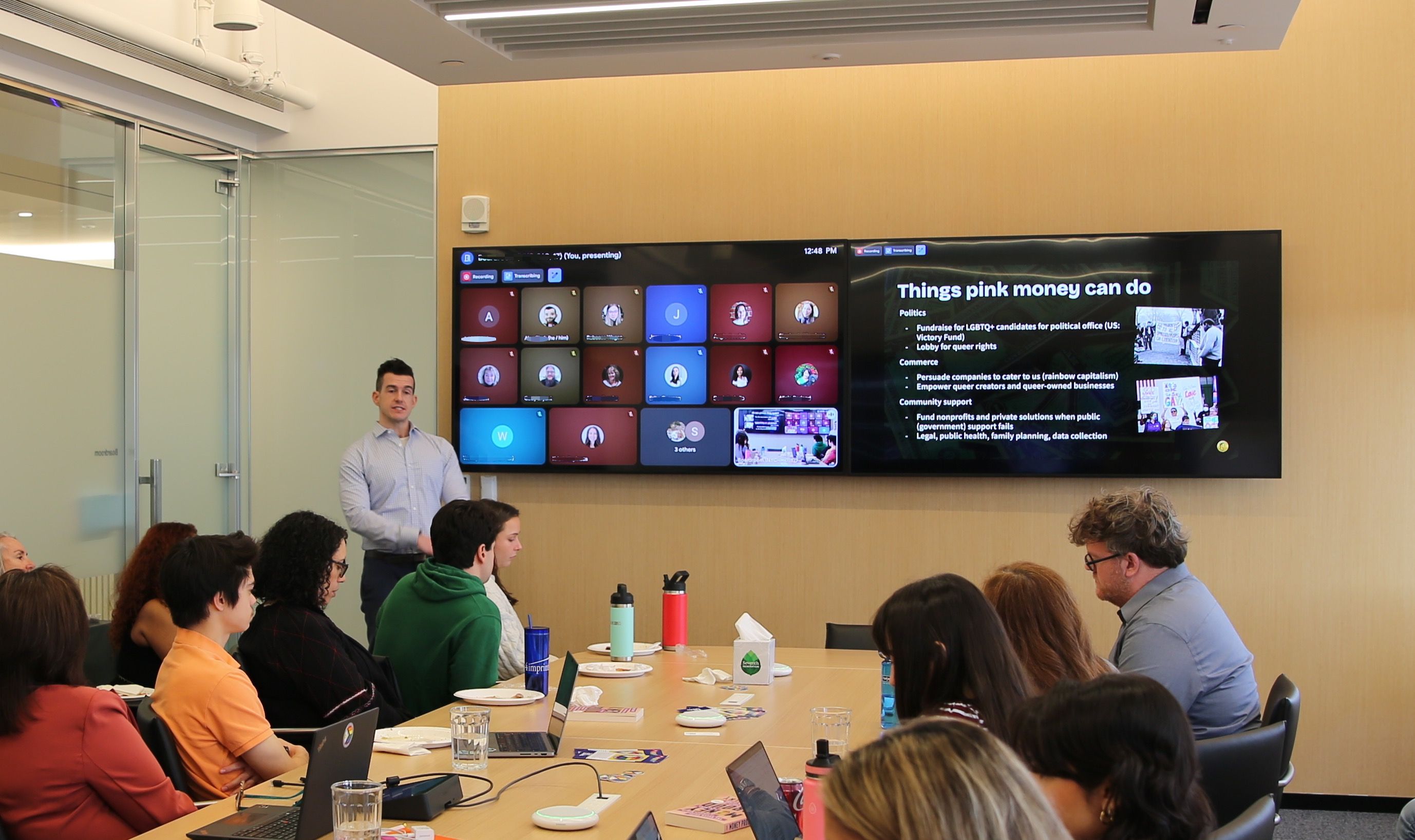
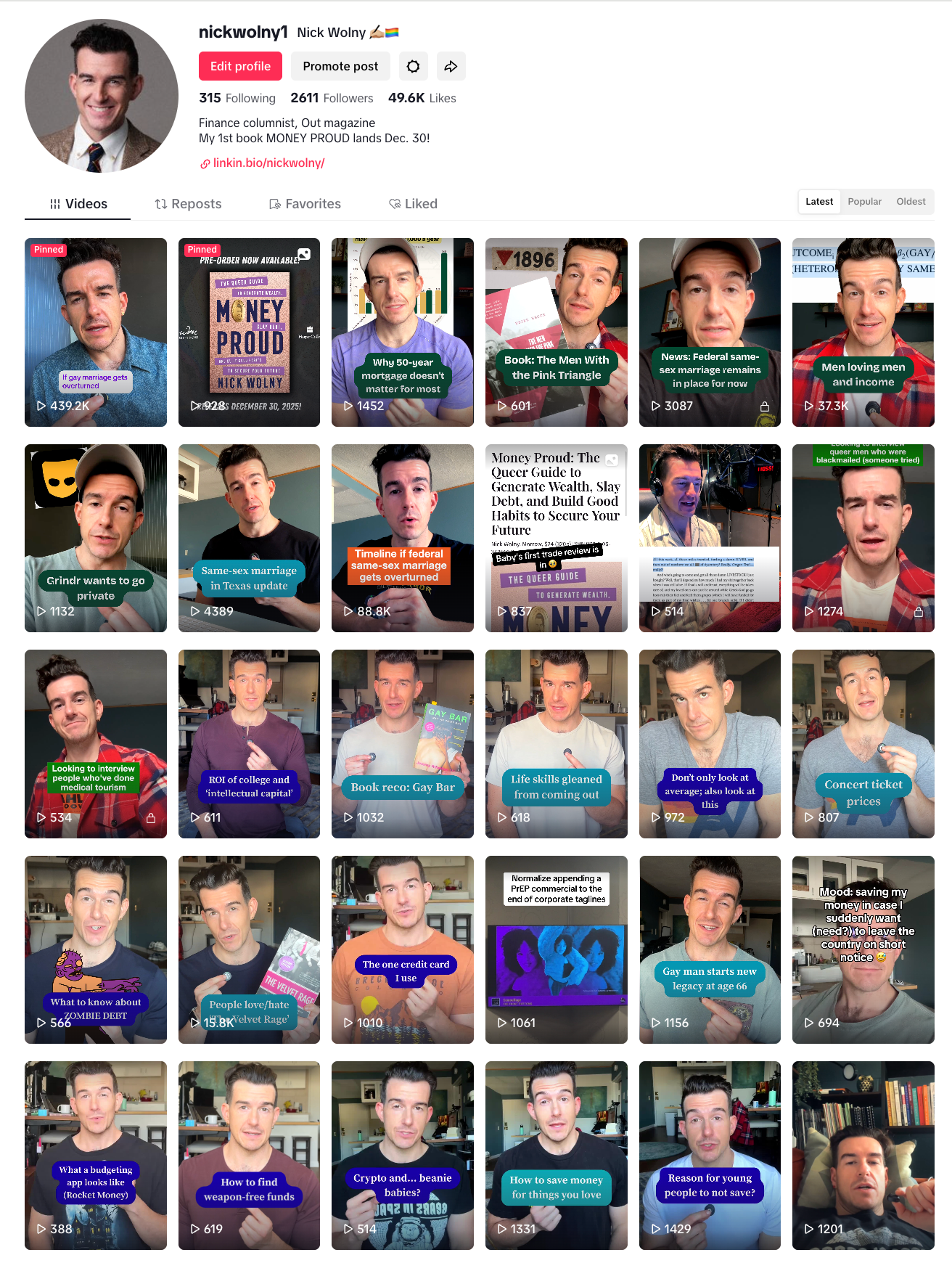
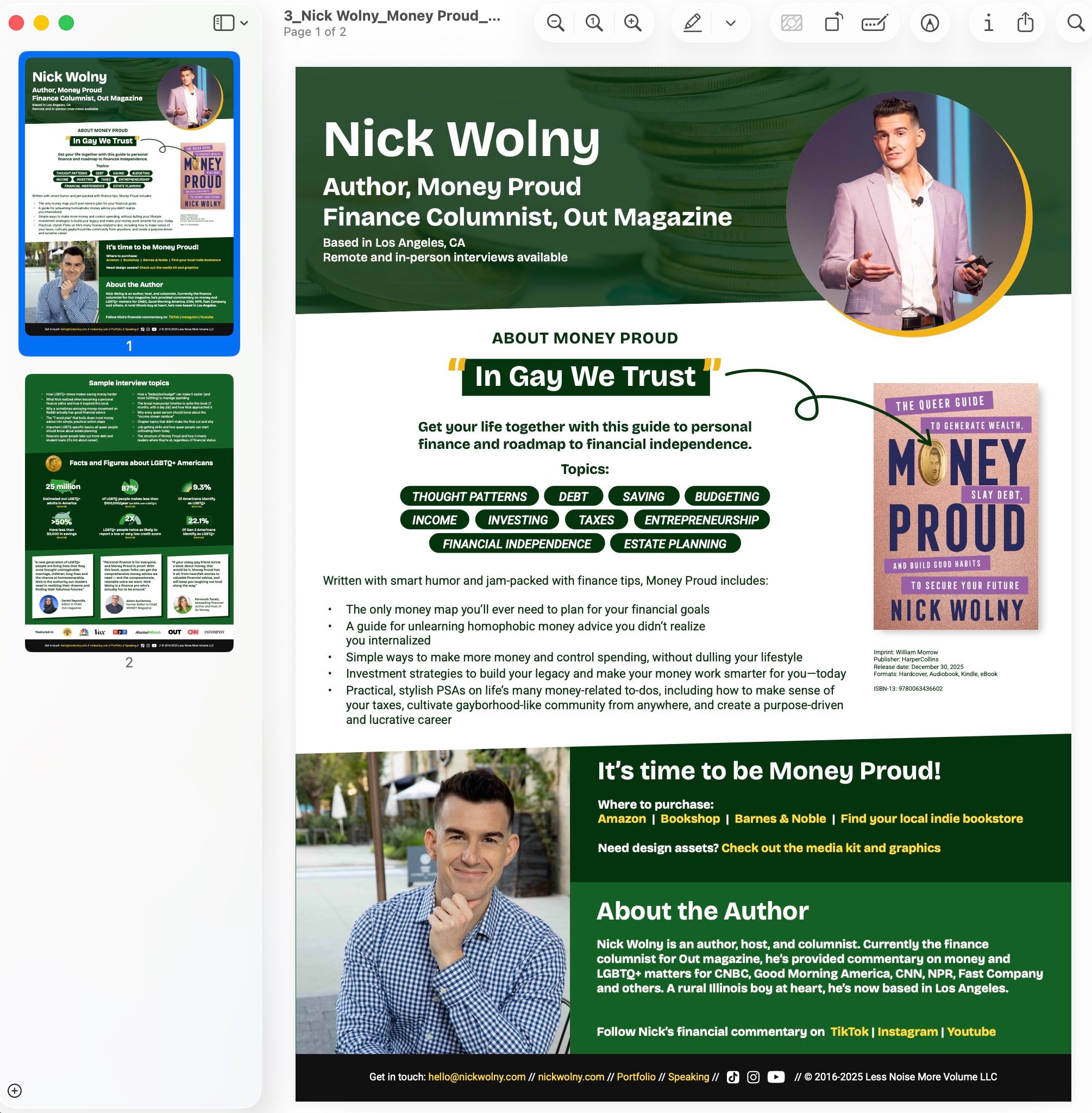
Recap
Professionally, I closed on my first book deal in June of last year. Both my career in corporate media and finance column in Out magazine also picked up around that time – 2024 was busy! – so I put consulting on the backburner for a bit.
2025 has been even busier. I started the year with California wildfires in my backyard. (I was in Las Vegas at the time for CES, though. Finding out there's a wildfire in your backyard while in a different state is... something.) I turned in my book manuscript at the end of January, about 82,000 words, which is standard for a book of 300-ish pages (80k words was my minimum contracted deliverable).
Right around this time, a change in U.S. presidential administration led to an almost immediate chilling toward LGBTQ+ acceptance and visibility. I quite literally was making last-minute adjustments to my manuscript in that last week because the Trump administration began dismantling certain protections almost immediately.
Stressors aside, I delivered on time. Seven months for a book manuscript on top of a day job was nuts (I can share in a future newsletter how I adjusted my writing approach to hit this, if people care).
I'm also glad my editor waited until I was done to share with me that sometimes even professional writers fail to deliver in their book contracts. While toxic at times, the maxim “Failure is not an option" served me well here.
My publisher and I finished copy edits in the spring, a process I really enjoyed, because I indeed love editing. The HarperCollins copy desk’s final style sheet for Money Proud is downright zany.
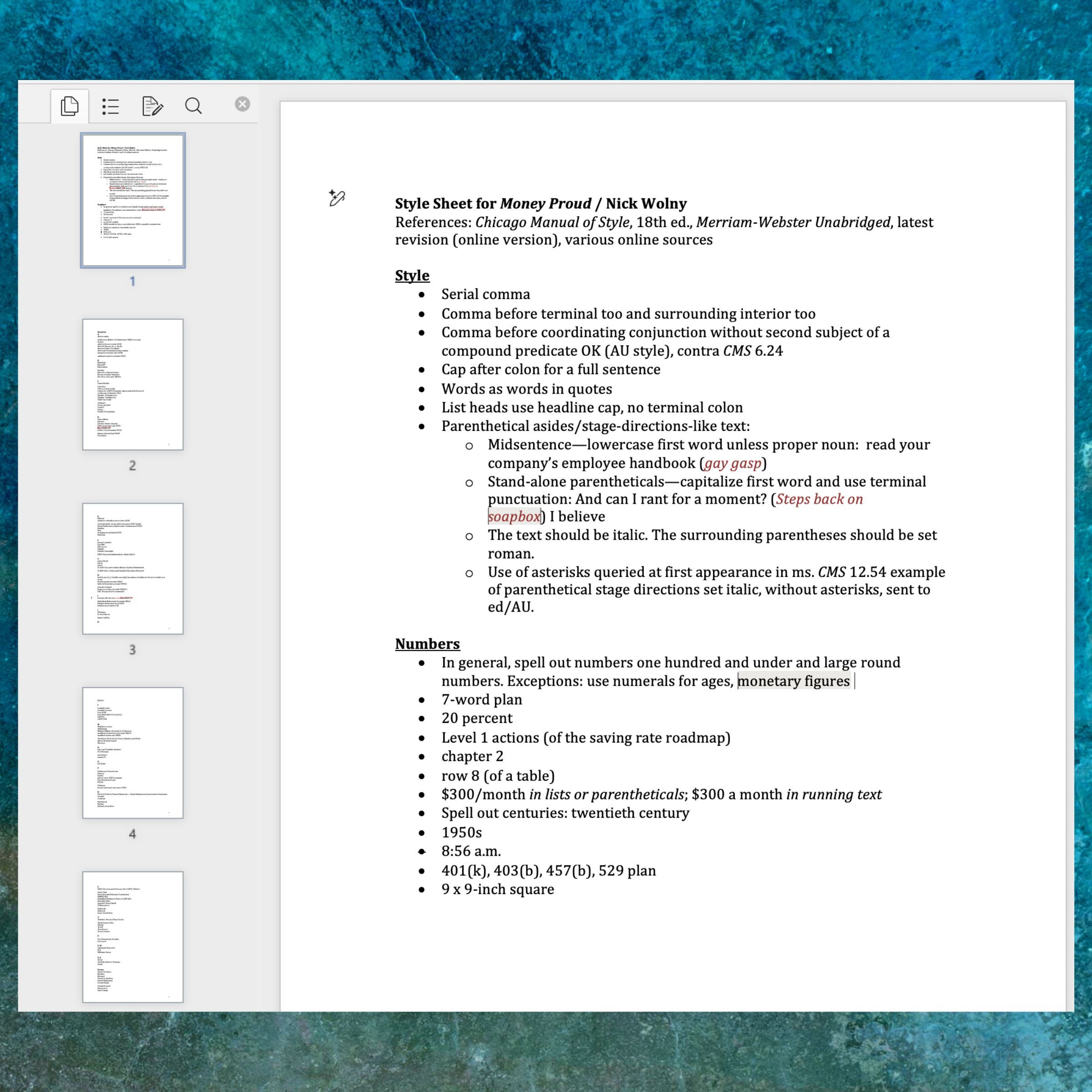

Behind the scenes, though, my personal life was falling apart.
Things went full-midlife crisis as my relationship of almost nine years came to an end. The decision was mutual, but the way the epilogue played out wasn’t great.
I'm also now a couple years into being fully no-contact with my biological family, and while it's good for my boundaries and I've done a lot of therapy around it, it's still hard at times.
I decided to leave West Hollywood, where I'd lived the last four years. WeHo had been my only California living thus far, and although WeHo is very gay (a compliment, not a pejorative, obvi), I don’t think it’s for me.
I’m a midwest boy at heart. I need grit. I need that frugal energy. I need my local diner with blue-collar regulars getting their bottomless black coffees topped off by a waitress named Amberlynne who’s been working there since 1993.
So, in June, I moved to Long Beach, about 24 miles (39km) south of Los Angeles. I bought a condo – baby’s first home purchase, though perhaps not under the circumstances I expected – and the new bachelor pad is great.

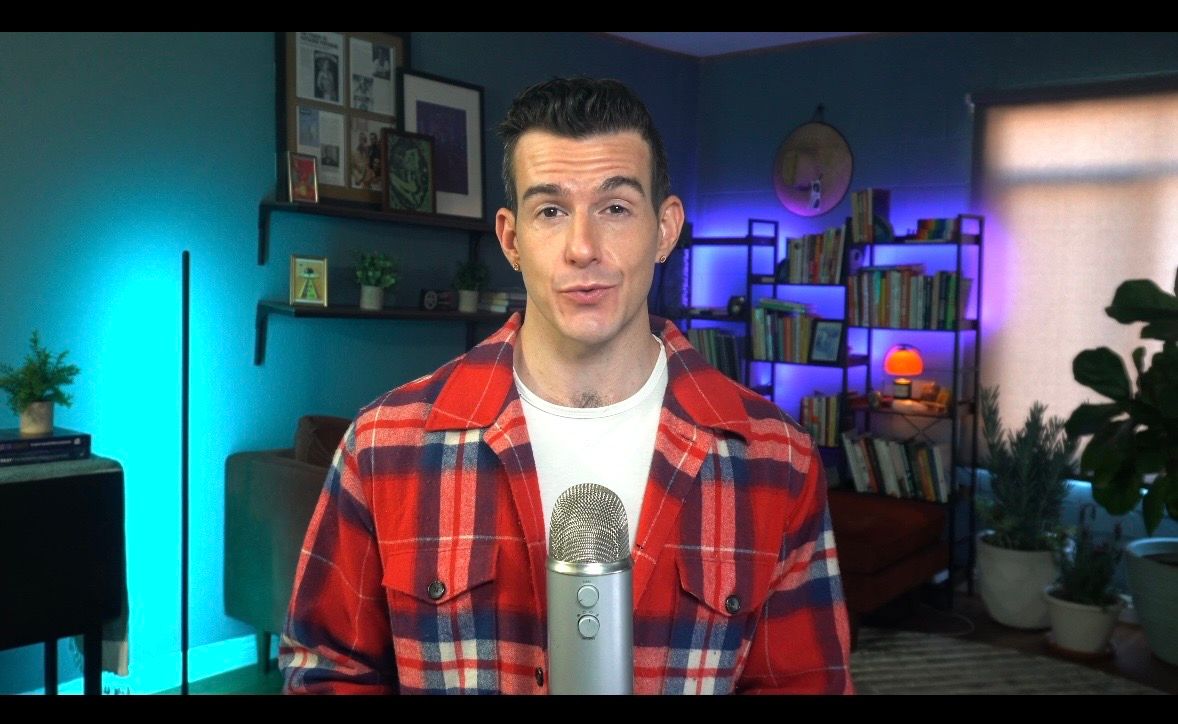
I spent most of summer alone, resting, roosting, and focusing on myself. I lost 20 pounds, and a lot of willpower went toward weaning myself off of weed and alcohol, which I've now mostly kicked.
On craft
Part of my book prep has been to start posting videos on social media.
Some of you know I’ve historically been standoffish toward social media. My POV as a consultant was (and is) that it’s risky to build on rented land. Medium’s algorithm tantrums in 2021 proved this.
But I acknowledge that social media is where a lot of queer people are at, and queer people are the main audience I’m trying to reach with my work moving forward.
Also, I have a contract with a publisher now; it’s not just about me anymore.
More of my writing is focused on public service now. I saw the quiet power of personal finance content firsthand working as a senior editor for NextAdvisor, a partnership with TIME, before it was shut down in 2023.
We wrote and published stories that collectively garnered millions of views, not because we were special or revolutionary (though we were a kickass team), but because readers are always looking for help with their money, especially in today’s economy.
This info helps almost everyone, but there’s a particular opportunity to tailor it for the LGBTQ+ community, a population that is statistically worse off in many personal finance metrics. As I enter my fourth year publishing a finance column for Out magazine, it’s clearer to me than ever how quality content on topics like money, technology, and culture add value to the communities in my life.
A lot of the money content out there is bland, manipulative, elitist, or all of the above. There’s a need for freshness and personality in order to reinvigorate people about their personal finances – and lives. That's what Money Proud aims to do. The first trade review from Publishers Weekly agreed, which is a relief, and this angle is my north star for social media as well.
I’ve scripted, edited, and posted about 50 videos so far, which you can browse on TikTok or Instagram. (Platform-wise, TikTok is doing way better; Meta seems like a mess these days, if I'm being honest.) These social media snacks have given me good video editing practice, I’m reaching new people, and I’m finding my groove.
@nickwolny1 Queer ppl, income, and how language changes what shows up. Original data set is the NSDUH survey from 2015-2021, which had about 68,000 respondents each year. There wasn’t a statistically significant income difference for heterosexual women reporting some SSA vs no SSA. #lgbtq #mlm #gay #personalfinance #queer ♬ original sound - Nick Wolny ✍🏼🏳️🌈
The second reason
The other reason I paused on newsletter writing is that AI has flipped online writing on its head.
Eight months after I took a job in corporate media, OpenAI dropped ChatGPT, and all hell basically broke loose.
Several of my former online entrepreneur peers, from fellow silver-tongued copywriters to yearslong agency owners, saw their books of business evaporate in a matter of months.
Poof. Finito. Hasta la vista, baby.
The technology’s clunkiness was reshaping my past LGBTQ-focused work, too. Blog posts of mine that had strong SEO, like this one on Pink Money, were being sucked into AI-generated recaps. Sometimes, my accurately-curated information was then frankensteined into an inaccurate summary. Nothing as egregious as glue on pizza, but for an information professional, it’s unnerving.
“But the chatbot cites its sources now!” Girl, users don’t care. Pew Research Center already covered this: No one’s clicking on those damn source links. So unless you’re a huge brand competing for share of voice across an entire industry or market, Generative Engine Optimization (GEO) is not a thing you need to care about.
Still, generative engines are rapidly taking over the entire internet. So we have to start thinking about a world in which users no longer use search engines… or maybe even the internet at all.
It was enlightening to read 404 Media co-founder Jason Koebler’s scathing takedown of AI earlier this summer. He notes how 404 gated most of their website because LLMs were scraping and summarizing their stories mere minutes after they were being published, and that trying to block LLMs is futile.
I needed a moment to reflect on what I want to write, how I want to write it, and where I want to publish it. I don’t want machines to mangle my intellectual labor, especially as I move toward what I believe is part of my life’s work: thoughtful, LGBTQ-focused service journalism.
So, I chatted with my web developer at the end of summer, and together we decided to gate most of my website and writing moving forward. Most of that is now complete, and I'm ready to get back to being a brat in your inbox.
Create for people, not machines
So much of content has become about creating and publishing online in a way that satisfies machines, not humans.
You create a post or video in the format the machine wants, so that the machine will curate and distribute your post and more users will theoretically see it. And if lots of users have engaged with it, that must mean the content was good, because follower counts scratch our social status instincts in the moment, and are hard to shake.
This was a noble pursuit in the 2010s. But these days, you can juice distribution on social media algorithms pretty easily using comment bots.
Example: I researched financial YouTubers a lot this summer. It surprised me how often videos that were only a couple days old already had thousands of comments. Sure enough, when I dug through the comment feeds, many of the user accounts were only recently created and quite suspicious. (This Fast Company guest essay from earlier this summer on how AI bots manipulate social media is an absolute must-read.) The platforms can't keep up.
Dead internet theory, a hypothesis that most or all of the internet is already fake, keeps inching closer to reality.
I’m gonna write for humans, not robots. My take is that, with AI-generated content already ubiquitous, good human writing will become increasingly special and important.
Try as it might, ChatGPT will never out-limp wrist me because it lacks the training data to do so. (If it were to try and fetch that data, though, I believe I would be a target for scraping.)
If you want to help... pre-order Money Proud. Then order another one as a gift. Also tell your friends about it! I need all the help I can get to spread the word, and I want this book to be the talk of the town.
More to come soon. This newsletter is gonna be hot. For now, we’re getting this book launched and this flywheel set to embrace the future.

Out Magazine column
It's onlywork
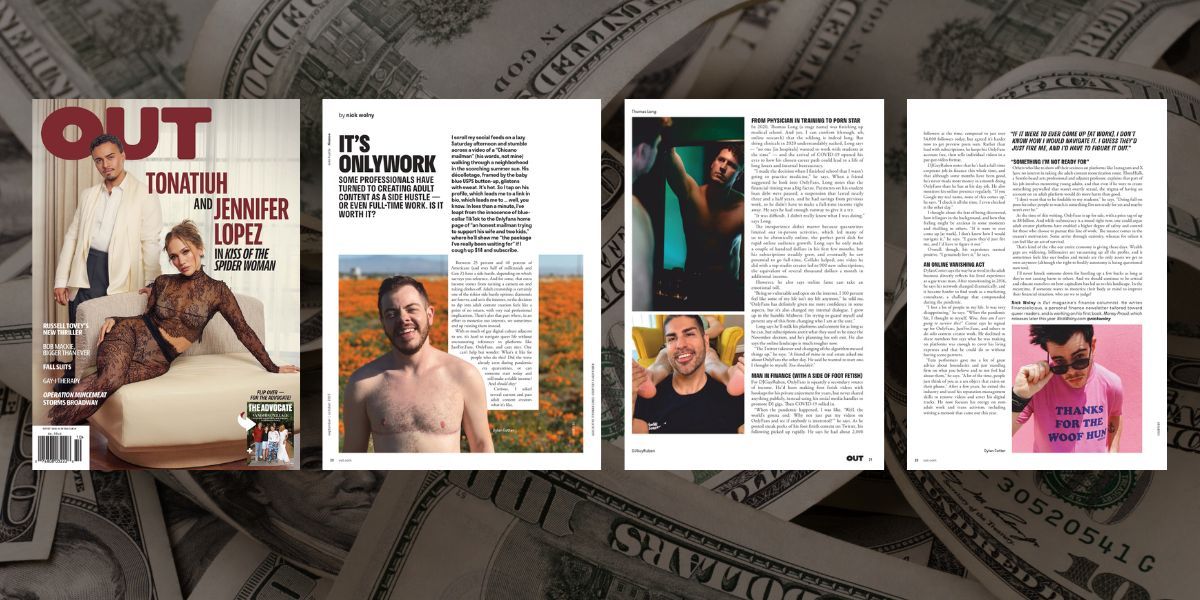
Better late than never: For the Sept/Oct issue of Out mag, I touched on OnlyFans. I interviewed some creators, including one person who dropped out of medical residency, and another who later left the industry and shared how he covered his tracks. I contextualized all of this in our increasingly K-shaped economy. And it was a sexy mailman's post on social media that inspired this article.
Read the column on Out's website here.
And here's the "behind the column" story on Instagram.

Money Proud: six weeks to go!
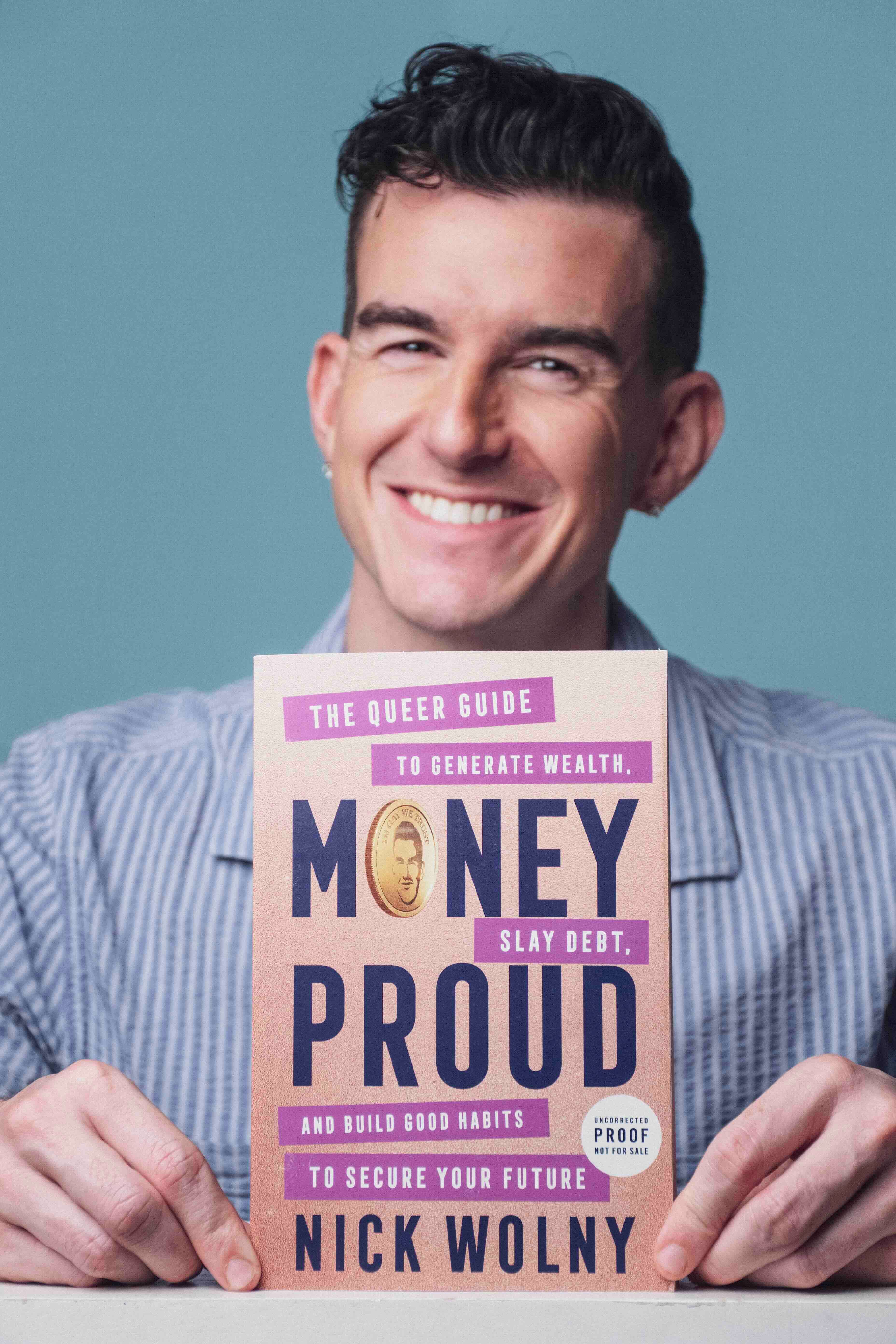
Blurbs are rolling in! Get the only money book sassy enough to snap you out of late-stage capitalist, technofeudalist, catastrophist malaise! Learn more here.
“His tone is conversational and witty, mixing practical tips like setting aside a savings account for “occasional opulent shit,” with affirmations that financial independence is both an act of pride and a form of protection in an uncertain political climate. Exhibiting a clear understanding of behavioral finance, Wolny succeeds in making money talk feel inclusive and empowering rather than prescriptive. Readers seeking a fresh, culturally aware guide to financial wellness will find this as entertaining as it is instructive.” -Publishers Weekly“
A new generation of LGBTQ+ people are living lives that they once thought unimaginable — marriage, children, long lives, and the chance at homeownership. These new possibilities require a guide, which is why Nick Wolny's column in Out is such an integral part of our magazine. Nick is the authority queer consumers need in realizing their dreams and finding their fabulous futures. But we can only fit so many words in a column, which is why Money Proud is much-needed and exciting, a book exploring underexplored terrain.” - Daniel Reynolds, Editor-in-Chief, OUT Magazine
“I am so excited about this book! It is so needed! I have seen firsthand how Nick Wolny communicates as a writer and entrepreneur. His style is succinct, accessible, empowering, and fun—the perfect combination for bringing a book like Money Proud to the LGBTQIA2S+ community.” - Rachel Rodgers, bestselling author of We Should All Be Millionaires and CEO of Hello Seven
“Personal finance is for everyone, and Money Proud is proof. With this book, queer folks can get the comprehensive money advice we need — and the compassionate, relatable voice we want. Nick Wolny is a finance pro who’s actually fun to be around.” - Adam Auriemma, former Editor-in-Chief of CNET and Money magazine
“If your sassy gay friend wrote a book about money, this would be it. Money Proud has it all, from heartfelt stories to valuable financial advice, and will keep you laughing out loud along the way.” - Farnoosh Torabi, bestselling finance author and host of So Money
